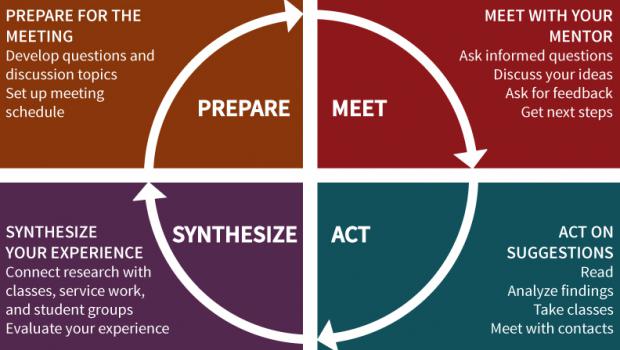Undergraduate Research Opportunities
Office of Research, Scholarship, and Sponsored Programs
Why Research?
Research, scholarship and creative endeavors are a major part of UT Tyler's mission. Every faculty member is engaged in groundbreaking original scholarship, and as an undergraduate, you can join faculty in their work in laboratories, libraries, studios and beyond. If you get involved in research, you can connect your classroom learning with your intellectual interests as you work on an independent project under faculty mentorship.
Research experience is a great resume builder and an excellent, proven way to expand learning outside of the classroom. Whether considering graduate school, looking for a creative outlet, searching for a thesis project or wanting to hone critical thinking skills, students will find many interesting projects on the UT Tyler campus.
Getting Started
1. Identify what opportunities are available.
On the UT Tyler campus, there are dozens of research opportunities available at any given time. Finding the right opportunity for you can be a daunting task for someone who is considering undergraduate research for the first time. Perhaps the first place to look to identify available opportunities is job postings (Handshake, department bulletin boards, faculty office doors, etc). If you find one or more topics intriguing, contact the listed faculty member and request an in-person meeting.
If you cannot immediately identify an opportunity, ask yourself these questions to help you reach clarity.
- Which topics in your courses have you liked the most?
- Which courses have you liked the most?
- What are your longterm career goals?
- Which professor motivated you in a course?
- What types of research have other students done?
- What can I learn by going to an undergraduate research symposium?
- What experiences did other students have?
2. Identify a faculty mentor.
Research opportunities start with identifying a faculty mentor. Be thoughtful about the types of research in which you are interested, and therefore which faculty members you decide to contact. You do not have to work with a faculty member in your major or even in your college.
Choose five to 10 potential faculty members that you might like to work with. You can start with the departmental websites and their lists of faculty members. Search for concepts/keywords that you are interested in studying to find faculty at UT Tyler working on that topic. Have several faculty members in mind because not every faculty member will be able to take a new student. Contact the Office of Research, Scholarship, and Sponsored Programs at research@uttyler.edu for help in identifying potential faculty members.
3. Prepare for your first meeting with a faculty mentor.
Once you choose the faculty members you want to contact, read about their recent research direction. You can find this information on their pages on departmental websites. You may not understand everything in a research paper, but you will understand some of it. It will help you determine whether you want to work with a particular faculty member or it may eliminate a particular choice. After you read some papers, email the faculty member and ask to set up an appointment to discuss their research and potential undergraduate research opportunities with them. As you prepare for your first in-person meeting with a mentor, it is critical to do your homework to make a good first impression.
After you have a meeting set up with a faculty member, consider the following at the meeting:
- Mention that you read their papers and that you chose them because you are interested in their research.
- Communicate your availability and time commitment (hours per week and semesters).
- Inquire about financial aid or being paid for hours worked.
- Don’t be afraid to ask questions.
- Be serious but enthusiastic.

4. Plan a successful project.
Every project is unique, but successful projects have one thing in common: they are developed with the help of a faculty mentor. Additionally, any defined research project is part of a larger project or narrative. Be cognizant of this. As you plan your project, some things you should discuss with your mentor are:
- How does your idea fit within the larger framework of the faculty mentor’s research or artistic expertise?
- How do I focus the project idea into a well-defined topic?
- What steps must I take to investigate the research question or to create art?
- What additional preparation will I need before starting the work?
- How does the topic relate to existing works in the field, and what additional works should I examine?
- How do I create a feasible timeline for the project?
Students should also seek out opportunities to present or publish their research, as the research project is nearing completion. There are a number of undergraduate research presentation opportunities on campus, but there are also student presentation opportunities at professional conferences. Please consult with your faculty mentor to help identify these opportunities.
Interested in a career in biomedical research?
- The National Institutes of Health has internships and programs to help you become a research scientist